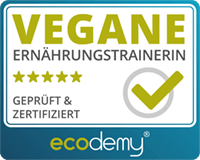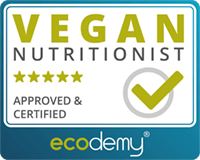Someone Needs To Say This: Eating Vegan Is Not Easy
But it’s not a sacrifice, either.

Visit activeplantbased for professional help and plant-based nutrition training.
All Key Points
- Any type of change requires hardship.
- Information is what stands between you and any type of change you wish to achieve.
- The truth often does hurt.
- Do not let your brain dictate all of your behaviours. Despite it not liking (frequent) change, it is your higher self’s job to navigate the brain towards a direction you deem worthwhile.
- Covering your nutrient needs while following a vegan diet is, in fact, no rocket science. Make a plan, establish a routine and prepare.
- A smart way to kickstart your vegan journey; add a variety of pretty much any food you personally enjoy (legumes, pulses, rice, potatoes, veggies, greens)
- When working out, the closer you are to training, the less fat and fibre you should consume.
- The furthest/right after your training, it is best to consume foods which provide slow-digesting carbohydrates.
- Becoming a vegan can require more energy and effort. Fact. It is not, however, an overly complicated or exceptionally difficult process.
For many things in life, we go the extra mile. Whether it is a single dad putting in more work hours for more bread, or a student trying to get a college degree that sucks the life out of him. That desire of wanting to reach higher is in our human nature.
Absolutely and certainly; nothing that is worthwhile comes easy. — Me
Expect hardship
We know that hardship is worthwhile, we experience it on a daily basis. So why is it that when it comes to changes in diet or bodily changes, we want it as easy as possible? We know it’ll require hardship. So we don’t even try? That is a hell of a bad idea.
Information
I’ve come to understand something: The thing that stands between you and any change is information. The amount of information you need to get something going depends on your upbringing, culture, resistance, general opinions and worldviews, how open you are to new experiences etc. So your willingness to change depends on your individual everything.
Imagine two people who want to work out. One of them is challenged to learn every detail about moving the body and its health benefits, and the other only knows that “it’s healthy”.
Who is more likely to work out? For many of us, “Moving your body is healthy” doesn’t cut it. It’s not enough information to catalyse a reaction that will induce behavioural change.
That also means that if you increase the amount of information about a certain topic, you’re more likely to invite behavioural change.
Denial or no denial?
The prerequisite is to not be in denial, and that is hard, because one doesn’t know he’s in denial; otherwise, he wouldn’t be in denial. Generally, ask your surrounding actively whether or not you’re in denial about certain things or what they think you should change about yourself.
Truth hurts
If they’re honest (and if they like you), they’ll tell you the truth. If you explode when met with critique, you know you’ve got work to do. (Note to self: No, they’re not treating you unfairly. Get a grip.)
Our brain is focused on survival and loves routine (that forms into habits)
Note that our brain dislikes things that constantly change, especially crucial things that affect our daily routine, because it requires a high amount of energy, and there is only so much energy to allocate to certain tasks, so it tries to prioritise.
The number one task of the brain is survival. It does its job just fine, because, look at us all we’re still alive, yay, breathing, eating and sleeping when we’re supposed to. The brain even sends us notifications in terms of hunger, thirst and tiredness, prompting us to do stuff.
But it’s our higher selves’ job to navigate the brain and push and trick it slowly into a direction that we deem worthwhile. Don’t let your brain dictate all of your behaviour. If you let that happen, you’re simply an instinctive mammalian.

That being said, this page is focused on providing information to make it easier for you (we love easy) to switch to a plant-based diet.
Information
Upfront: Covering your nutrient needs while following a vegan diet is, in fact, no rocket science, although I find that idea entertaining.
Athletes, in particular, are accustomed to paying attention to their nourishment. A thought-out plan, establishing a routine, and some preparation are three steps needed in order to satisfy your nutritional requirements.
Supermarkets are constantly increasing their vegan products, and meal-prepping is quite popular, making it easier to be prepared.
A simple to prepare and nutritious meal is to randomly throw together your pulses and legumes and combine them with, rice, potatoes or grains. Then add any vegetables you have and make a salad with the leafy greens and sprouts you have available at the time. Touch up with more random spices and herbs. Voilà.
The above is a smart way to kickstart your vegan journey since you can add a variety of pretty much any food you personally enjoy. From then on, you will slowly come up with your own recipes and food combinations, plus find recipes which you can adjust to your own nutritional needs in a playful manner.
Training & food (for athletes)
The closer you are to training, the less fat and fibre you should consume. It is best to give your body short-chain carbohydrates (white flour products, fruits like bananas, apples, pears, protein powder, and plant drinks), which will fuel your training and help with recovery after exercise. Make sure you do not fill your stomach too much. Meals in liquid form are also a great option for when you’re training shortly.
The furthest/right after your training, it is best to consume foods such as whole grains, legumes and vegetables, which provide slow-digesting carbohydrates. Don’t be afraid to top your meals with plenty of nuts and seeds and add the necessary amount of fat according to your needs.
During long and intensive training, make sure you pack isolated carbs like bread/crackers/bars and additional protein and fats if needed.
If you’re joining a training camp or event, it is good to find out about their vegan food options beforehand and prepare accordingly.
Becoming a vegan can require more energy and effort. Fact. It is not, however, an overly complicated or exceptionally difficult process if you have a rough idea and you’re ready for the hardship. It is all a matter of deeming things worthwhile. And isn’t protecting an animal from death worthwhile?

